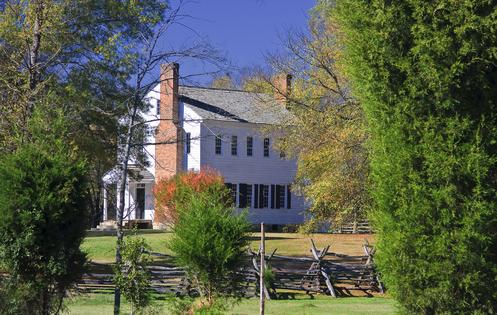The Historic Latta Plantation Controversy Reminds Us What Juneteenth Can Teach Us
After more than a century and a half of underappreciation, the emancipation celebration known as Juneteenth is bringing out the regional differences in various ways, some of which make me wonder whether the Civil War really ended in 1865 — and if so, who won.
“Juneteenth,” also called Freedom Day and Emancipation Day, among other names, marks June 19, 1865, the day that Union troops in Galveston, Texas, notified enslaved African Americans that the Civil War was over and slavery was abolished — two years after Abraham Lincoln signed the Emancipation Proclamation.
In Illinois, where state license plates constantly remind us it is the “Land of Lincoln,” the General Assembly has passed not just one bill but two to make Juneteenth a state holiday. One would take effect next year, the other immediately, depending on which one Gov. J. B. Pritzker signs.
Both bills were sponsored in the House by Rep. La Shawn Ford, a Chicago Democrat, after years of trying. Until now, he told the Chicago Tribune, ”there just wasn’t an appetite.” But in the past year of racial reckoning, the measure passed both houses of the state General Assembly without opposition. Twice.
The ease with which Illinois embraced Juneteenth contrasts sharply with the dust-up at Historic Latta Plantation. The “living history museum” just north of Charlotte, N.C., canceled but refused to apologize for a Juneteenth event that unintentionally ruffled more feathers than a fox in a henhouse.
At issue was the wording of an online announcement, since deleted, of a planned event at the old former plantation that sounded like the real tragedy of the Civil War was what it did to genteel white plantation life.
Come, it invited, to share stories of “former bondsmen,” an old euphemism for slaves. “White refugees have been displaced,” it said, “and have a story to tell as well.”
Visitors would hear from defeated Confederate soldiers and from “the massa himself who is now living in the woods” and on the run from the Yankees, his home taken over by the people he used to own, the announcement said.
The announcement gave a remarkably sympathetic-sounding description of the “overseer” — “now out of a job” — and asked, “What will he do now that he has no one to oversee from can see to can’t see?” an old Southern description of working in the fields from pre-dawn to after dark.
Online outrage from the community, Charlotte Mayor Vi Lyles and Mecklenburg County leaders against the apparent whitewashing of Southern plantation history hit the project like a Carolina coastal hurricane.
Latta Plantation is on land owned by Mecklenburg County, but the property and its programming are run by an independent nonprofit group. County officials and the town of Huntersville, where it is located, said they would review the group’s funding in the wake of the incident.
But, before you jump to any more conclusions, let me point out that the plantation’s site manager, Ian Campbell, is “an American man of African descent,” as he puts it in a lengthy online response to the controversy.
“To the masses on social media and politicians,” he said in the online statement instead of granting interviews, “no apology will be given for bringing a unique program to educate the public about former slaves becoming FREE!
“My job will be to continue to educate,” he said. “Historic Latta Plantation’s narrative will be to give a voice to our ancestors enslaved and as freedmen who were denied a voice. We will speak for them in a compassionate, accurate and sensitive manner.”
Good. Campbell’s earlier invitation sounds like an ill-fated effort to reach out to history buffs in language that wouldn’t offend the spirit of the “Lost Cause,” a pro-Dixie movement that has been revising Civil War history since Reconstruction — or as “Lost Cause” believers prefer to call the postwar period, “Redemption.”
I sympathize with the job he has to do, walking the tightrope between reality and history as it is viewed by those who think the romanticized plantation life of “Gone with the Wind” or “Birth of a Nation” told the true story.
Unfortunately, polls show a disappointingly poor knowledge of the war and postwar period that still sends echoes and earthquakes through our racial and political scene today.
That’s a tragedy. Campbell is right that education is the answer. After all, disputes about our racial past are really about shaping our political future.
========
(E-mail Clarence Page at cpage@chicagotribune.com.)
©2021 Clarence Page. Distributed by Tribune Content Agency, LLC.
(c) 2021 CLARENCE PAGE DISTRIBUTED BY TRIBUNE MEDIA SERVICES, INC.










